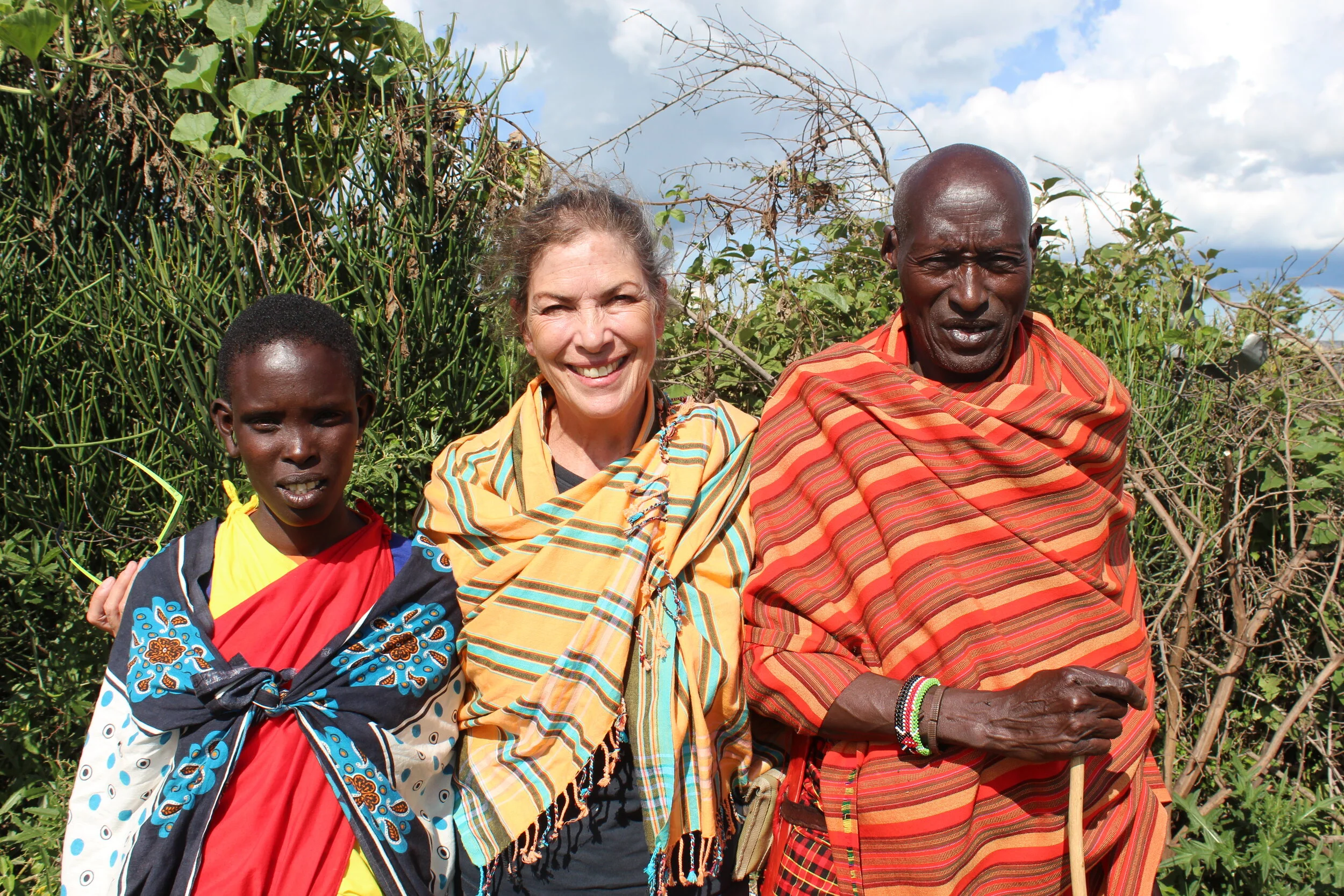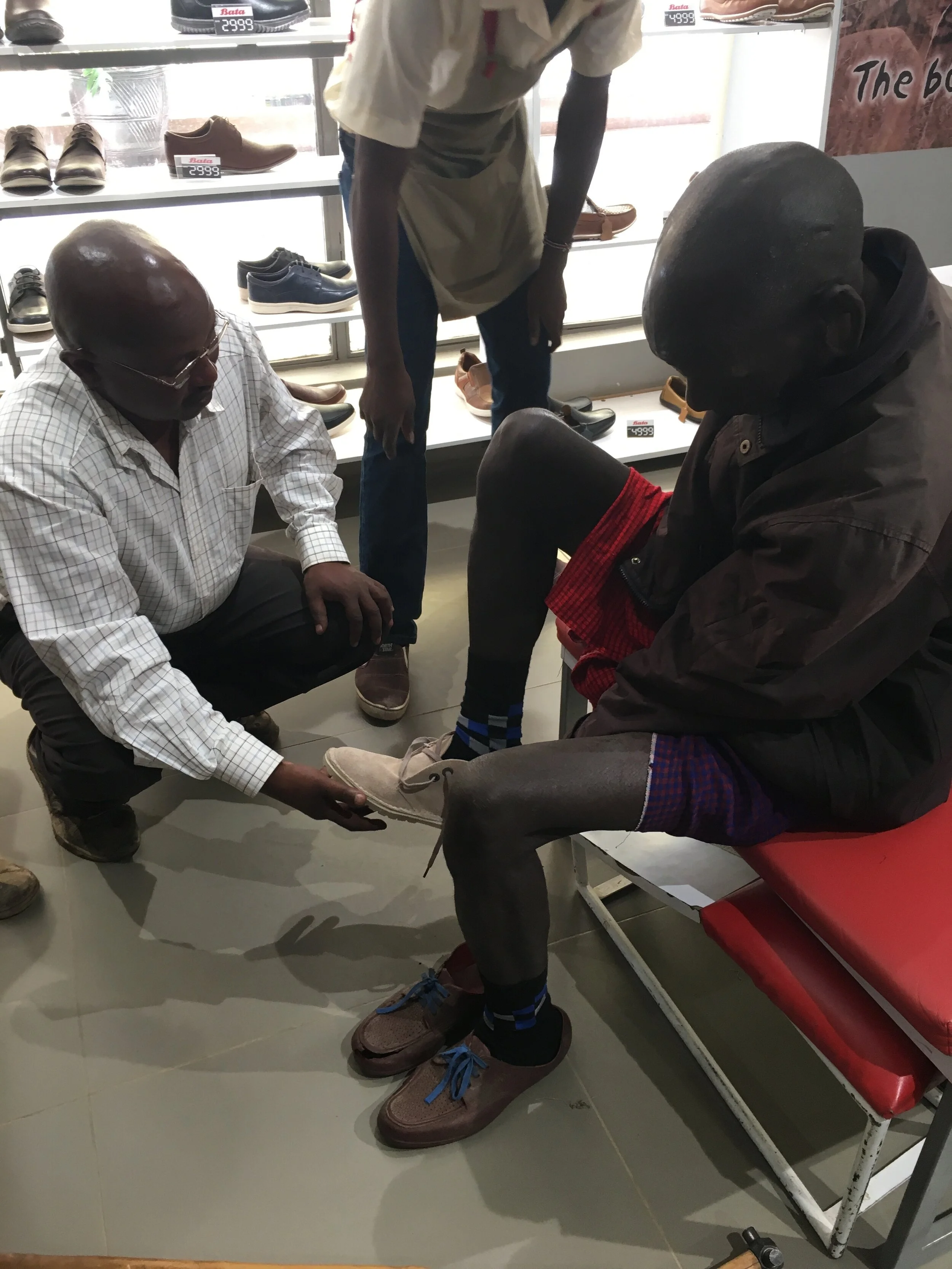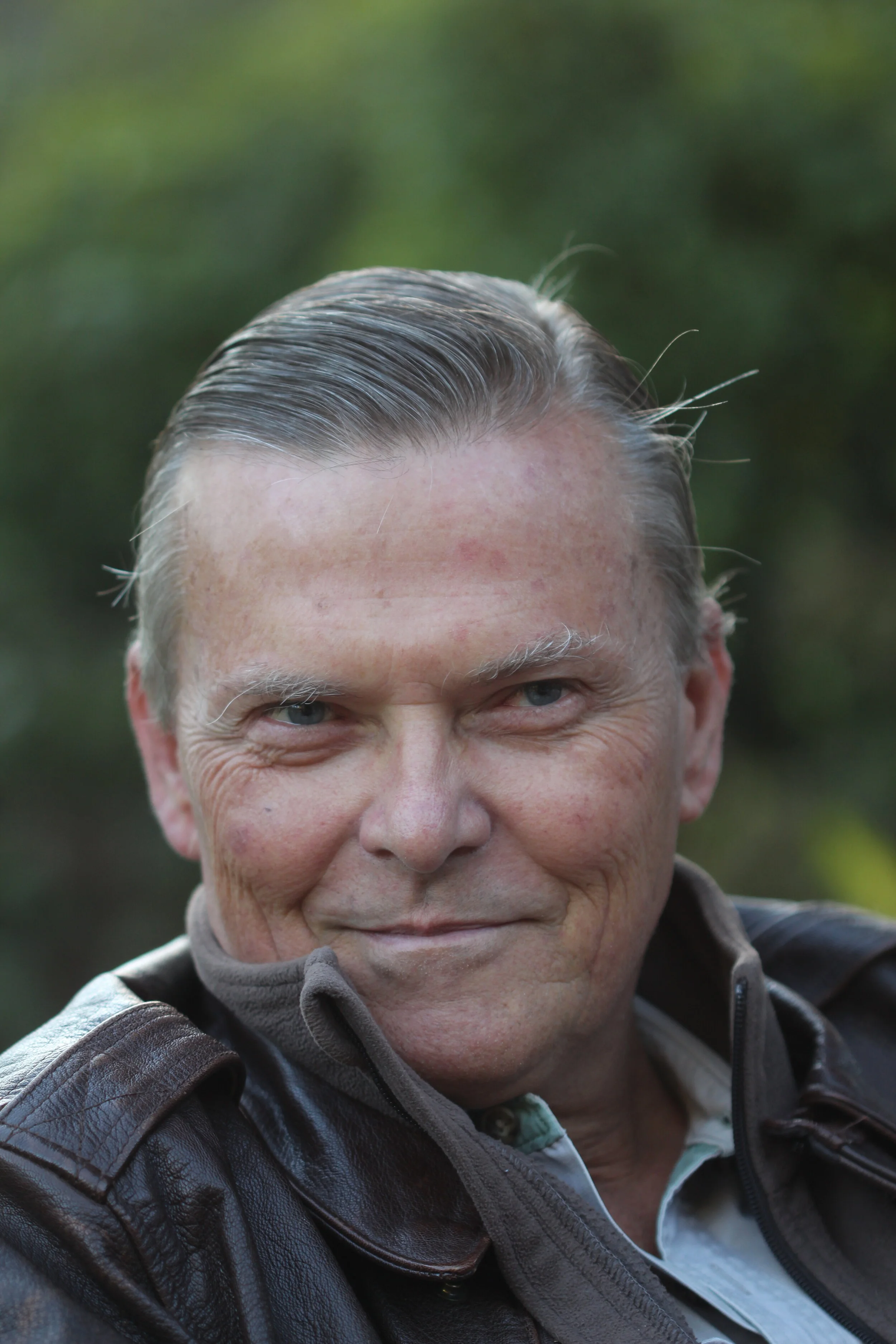La Chaleur Humaine - Part 2
By Robin Huffman, Safina Center Fellow
This is the second part of a two-part blog post. You can find Part 1 here.
The first time I saw Africa was in 1984, on a two-week Kenya photo safari with two girlfriends. The whole experience was like a dream—magical even in its challenging moments. My friends and I were swept away by the landscape, beasts, and gentle people. One of our fondest memories was at night around the campfire, listening to our guides’ stories, and then as we left to turn in, they lilted, “Lala salama” (sleep well). And that was what I named my next cat.
Narok's wife painting my face at their baby-naming ceremony. Photo courtesy: Robin Huffman
During the camp-building trip long ago, my friend Nick and I were invited to the baby-naming ceremony for the firstborn child of Narok, one of our Maasai warriors. What I hadn’t realized until the recent reunion was that they’d named the baby after me. I visited Narok’s wife and 30-year-old Robin (with her two children). It turns out, coincidentally, that Carl Safina has good Maasai friends who’ve named their baby girl “Safina.”
Narok (right), his daughter Robin (left) and me (center). Photo courtesy: Robin Huffman
At the end of our camp reunion, Nick brought one of our most popular Maasai guys, Mpoke, for an adventure in town buying new shoes. We also got him four pairs of socks—a veritable bounty!—which Mpoke declared made him feel like an American.
Mpoke trying on shoes. Photo: Robin Huffman
My friend Nick, of the Kenya safari camp, shared how he and a friend who was ex-British police/military, were once camping and suddenly surrounded by armed rebels in a remote part of northern Kenya. I commented that his friend was certainly better to have along than me. Nick replied drily, “Not at all! YOU, my dear, could be used for barter, be it man or beast!”
Nick at his safari camp on the Maasai Mara. Photo: Robin Huffman
Sitting around a fire one evening in Timbuktu, our Tuareg guide complimented the attractive young French journalist in our midst, “Vous êtes plus belle qu'un poulet rôti” (“You are more beautiful than a roasted chicken”). It was a quirky thought at the time. Flash forward several years. After six months on a limited, repetitive vegetarian diet at the primate sanctuary, resulting in shedding 30 pounds, I stopped briefly in Bruges on my way back to New York. My first day, sighting the bountiful display of sumptuous foods at the plaza’s weekly market, I suddenly understood the Tuareg’s compliment. When I spotted glistening, succulent chickens roasting on a spit, at that moment I’d never seen anything so beautiful!
A slick citified Tuareg in Bamako, Mali, once offered “all the camels in North Africa” for my hand in marriage. I figured that must’ve been the going price for a green card.
In New York just prior to my Mali trip, friends invited me to a gala for the Africa-America Institute. I had the opportunity to dance with that year’s honoree, Cheick Modibo Diarra, a Malian astrophysicist who’d worked for NASA, businessman, and politician (who was once acting Prime Minister of Mali). While dancing, I mentioned I was heading for his country. He asked if I would do him a favor. He wanted me to visit the woman who’d raised him and tell her that he loved her and still thought about her often. How could I refuse? I did visit, and it was endearing.
My favorite encounter in India was in Jaipur in 1991. I kick myself even today that I didn’t exchange contact information with this young fellow. As in many cities and towns in India and Nepal, local children offer to tour visitors. I agreed to one with this young boy. Before I spoke, though, he tried to guess my nationality. First he tried, “German?” I shook my head. “Dutch?” I replied, “American.”
He said, “Oh. It was the shoes.” I’d bought them in Germany.
While we strolled along a narrow street, able to see right into doorways of homes, I asked him, “Do the people mind?”
He answered, “My grandfather taught me that people are like the fingers on a hand. All different. Some mind, some don’t.”
I asked how old he was.
“Eight. How old are you?”
“I’m 36.”
He replied, “I thought so. Your face looks like it, but the hair is a problem.”
I promptly had us stop for some henna! At tour’s end, I asked how much he thought was fair for payment.
He said, “Nothing. You have learned from me today and I have learned from you. That is enough.”
I imagine that boy is probably running some corporation or some country by now.
Ah yes, traveling can be a humbling experience, and I welcome the lessons there are to learn, from where we perhaps least expect it.
With Narok, Mpoke, William and Simon. Photo courtesy: Robin Huffman





